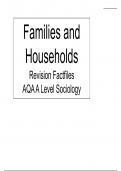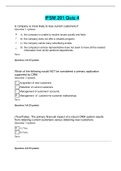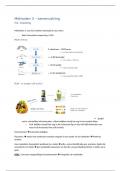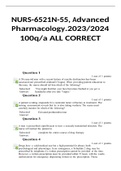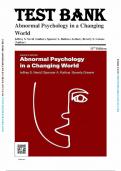Summary
Families and Households Summary Sheets - Revision Blast Knowledge Organiser
- Institution
- AQA
Indicative content with specification overview on the following contents: - Changing Patterns of Marriage, Cohabitation, Separation, Divorce, Childbearing, and Family Life - Gender Roles, Domestic Labour, and Power Relationships within the Family in Contemporary Society - The Nature of Childho...
[Show more]
